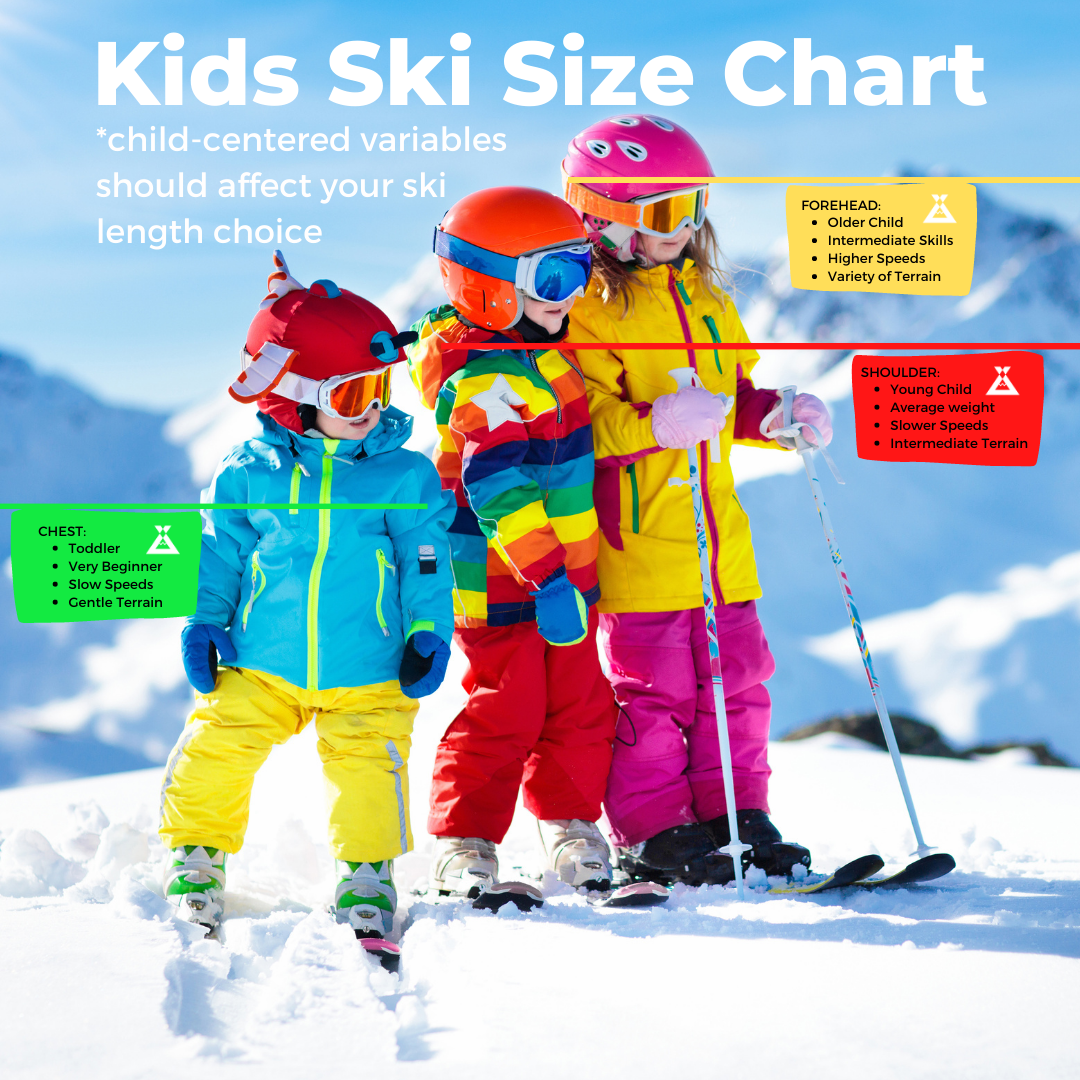Conquer the Slopes: Mastering the Art of Ski Length Selection
Carving down a pristine slope, feeling the wind in your face – the perfect ski day hinges on having the right equipment. And central to that equation is choosing the correct ski length. Selecting the appropriate skis isn't merely about grabbing the prettiest pair; it's about optimizing your performance, enhancing control, and maximizing enjoyment on the mountain. A mismatched ski length can lead to frustration, hindering your progress and potentially compromising safety.
Determining the ideal ski length involves a nuanced understanding of several factors, going beyond just your height. Your weight, skill level, skiing style, and preferred terrain all play a crucial role in this decision. While a general rule of thumb exists – skis should roughly reach between your chin and forehead when stood on end – it's essential to delve deeper to find the perfect fit. This guide will equip you with the knowledge to confidently select the skis that will unlock your full potential on the snow.
The history of ski length selection has evolved alongside skiing itself. Early skis were significantly longer, designed for traversing flat terrain rather than downhill descents. As skiing transitioned into a recreational sport and technology advanced, ski lengths gradually decreased, allowing for greater maneuverability and control. The evolution continues today, with advancements in ski construction and design influencing the optimal length for various skiing disciplines.
Understanding the importance of proper ski length selection is paramount for both beginners and experienced skiers. Choosing skis that are too long can make them difficult to control, especially at slower speeds and in tighter turns. Conversely, skis that are too short can feel unstable at higher speeds and on steeper terrain. The right length allows for effortless turning, efficient edge control, and a smooth, enjoyable ride. This translates to quicker progression, increased confidence, and ultimately, more fun on the slopes.
Let's define some key terms. "Ski length" refers to the measurement from the tip of the ski to the tail. "Skiing style" encompasses your preferred type of skiing, such as cruising on groomed runs, venturing into powder, or tackling challenging moguls. "Terrain preference" indicates the type of slopes you typically ski, ranging from gentle beginner slopes to steep expert runs. For example, a beginner skier primarily sticking to groomed runs will typically benefit from shorter skis for easier maneuverability, while an advanced skier tackling powder might prefer longer skis for increased floatation.
One benefit of proper ski length selection is improved control. Skis of the appropriate length allow for easier initiation and completion of turns, providing a more responsive and predictable feel. Another advantage is enhanced stability, particularly at higher speeds. Well-chosen skis will feel secure and planted, inspiring confidence and allowing you to push your limits. Finally, the right ski length leads to increased enjoyment. When your skis are perfectly matched to your ability and style, skiing becomes more effortless and intuitive, allowing you to fully immerse yourself in the experience.
To choose the right ski length, consider your height, weight, skill level, and skiing style. Online ski length calculators can provide a starting point, but consulting with a ski shop professional is highly recommended. They can offer personalized advice based on your individual needs and preferences.
Here's a step-by-step guide: 1. Determine your skier type (beginner, intermediate, advanced). 2. Consider your weight and height. 3. Think about your preferred terrain and skiing style. 4. Use a ski length chart or calculator as a starting point. 5. Consult with a ski shop expert for personalized recommendations.
Advantages and Disadvantages of Different Ski Lengths
| Ski Length | Advantages | Disadvantages |
|---|---|---|
| Shorter | Easier to turn, better for beginners, maneuverable in tight spaces | Less stable at high speeds, can feel unstable on uneven terrain |
| Longer | More stable at high speeds, better floatation in powder, smoother ride | More difficult to turn, requires more strength and skill |
FAQ:
Q: What if I'm between two ski lengths?
A: Consider your skiing style and terrain preference. If you prefer groomed runs, go shorter. If you like powder or speed, go longer.
Q: How do I choose skis for a child?
A: Children's skis are generally shorter than adult skis, based on their height and weight. Consult a ski shop for specific recommendations.
Choosing the right ski length is an investment in your skiing experience. By carefully considering your individual needs and preferences, you can unlock your full potential on the slopes and enjoy countless days of exhilarating skiing. Take the time to research, consult with experts, and find the perfect skis to elevate your performance and maximize your enjoyment on the mountain.
Expressing yourself with goth boy profile pictures
Unraveling the enigma exploring the work of dr paul h chung
Unveiling the timeline cuantas semanas tiene 9 meses

Ski Length By Height Chart | Innovate Stamford Now

Recommended Ski Length Chart | Innovate Stamford Now

Chart For Length Of Skis | Innovate Stamford Now

Ski Size For Kids Everything You Need To Know | Innovate Stamford Now

Slalom Water Ski Size Chart | Innovate Stamford Now

Ski Sizing Chart Mens | Innovate Stamford Now

Recommended Ski Length Chart | Innovate Stamford Now

What Size Skis For Toddler at Joseph Gibbs blog | Innovate Stamford Now

How To Measure Snow Ski Length | Innovate Stamford Now

How To Choose Ski Length For Kids | Innovate Stamford Now

Slalom Ski Size Chart | Innovate Stamford Now

Evo Ski Size Chart | Innovate Stamford Now

Proper Ski Length Chart | Innovate Stamford Now

Snow Ski Length Chart | Innovate Stamford Now

Smallest Size Childrens Ski Boots at Ralph Hammond blog | Innovate Stamford Now